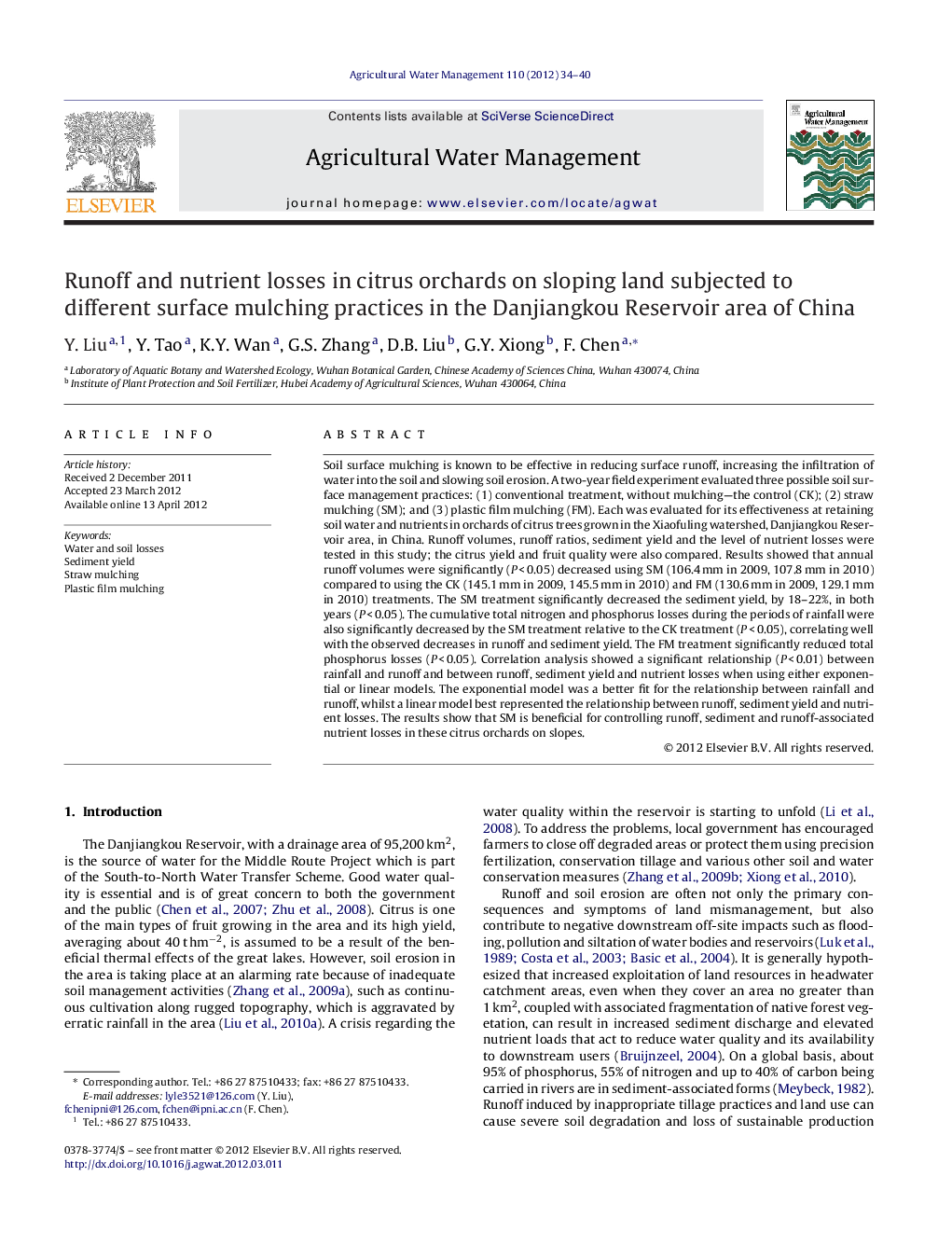| Article ID | Journal | Published Year | Pages | File Type |
|---|---|---|---|---|
| 4479015 | Agricultural Water Management | 2012 | 7 Pages |
Soil surface mulching is known to be effective in reducing surface runoff, increasing the infiltration of water into the soil and slowing soil erosion. A two-year field experiment evaluated three possible soil surface management practices: (1) conventional treatment, without mulching—the control (CK); (2) straw mulching (SM); and (3) plastic film mulching (FM). Each was evaluated for its effectiveness at retaining soil water and nutrients in orchards of citrus trees grown in the Xiaofuling watershed, Danjiangkou Reservoir area, in China. Runoff volumes, runoff ratios, sediment yield and the level of nutrient losses were tested in this study; the citrus yield and fruit quality were also compared. Results showed that annual runoff volumes were significantly (P < 0.05) decreased using SM (106.4 mm in 2009, 107.8 mm in 2010) compared to using the CK (145.1 mm in 2009, 145.5 mm in 2010) and FM (130.6 mm in 2009, 129.1 mm in 2010) treatments. The SM treatment significantly decreased the sediment yield, by 18–22%, in both years (P < 0.05). The cumulative total nitrogen and phosphorus losses during the periods of rainfall were also significantly decreased by the SM treatment relative to the CK treatment (P < 0.05), correlating well with the observed decreases in runoff and sediment yield. The FM treatment significantly reduced total phosphorus losses (P < 0.05). Correlation analysis showed a significant relationship (P < 0.01) between rainfall and runoff and between runoff, sediment yield and nutrient losses when using either exponential or linear models. The exponential model was a better fit for the relationship between rainfall and runoff, whilst a linear model best represented the relationship between runoff, sediment yield and nutrient losses. The results show that SM is beneficial for controlling runoff, sediment and runoff-associated nutrient losses in these citrus orchards on slopes.
► Surface mulching technologies can reduce runoff, sediment and nutrient losses. ► Straw mulching is beneficial for controlling runoff, sediment and nutrient losses in sloping citrus orchards. ► Film mulching was not the best treatment when considering soil and water conservation in the area. ► An accurate model is required to describe the relationship between rainfall and runoff, runoff and sediment and nutrient losses.
